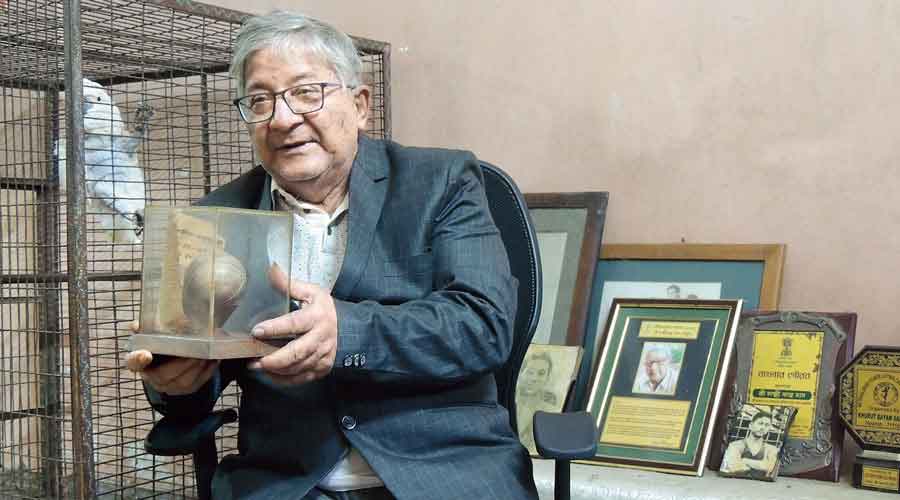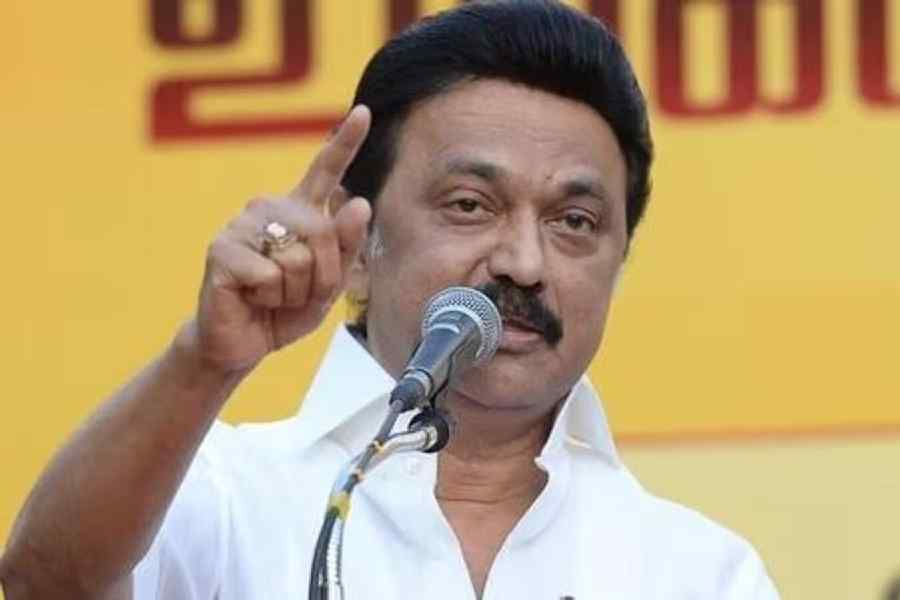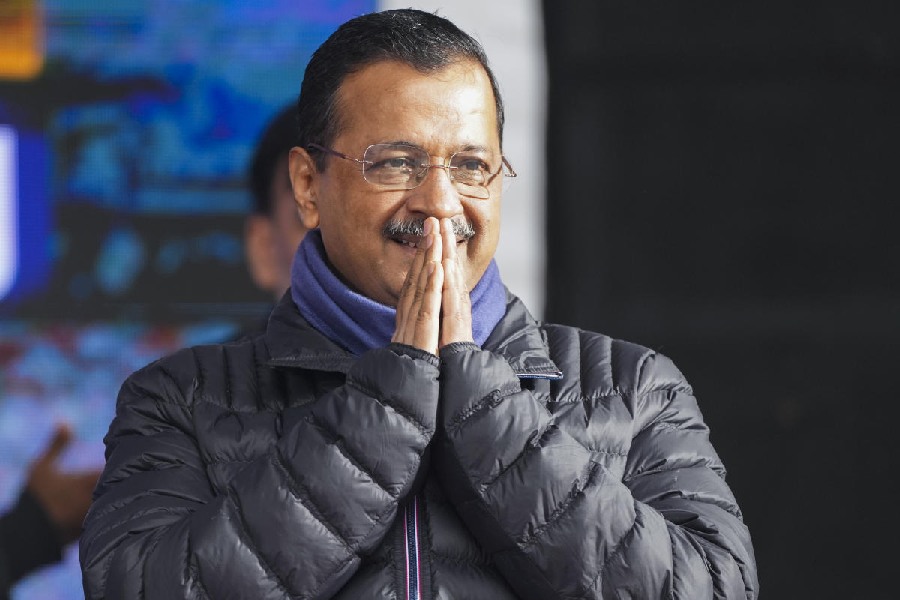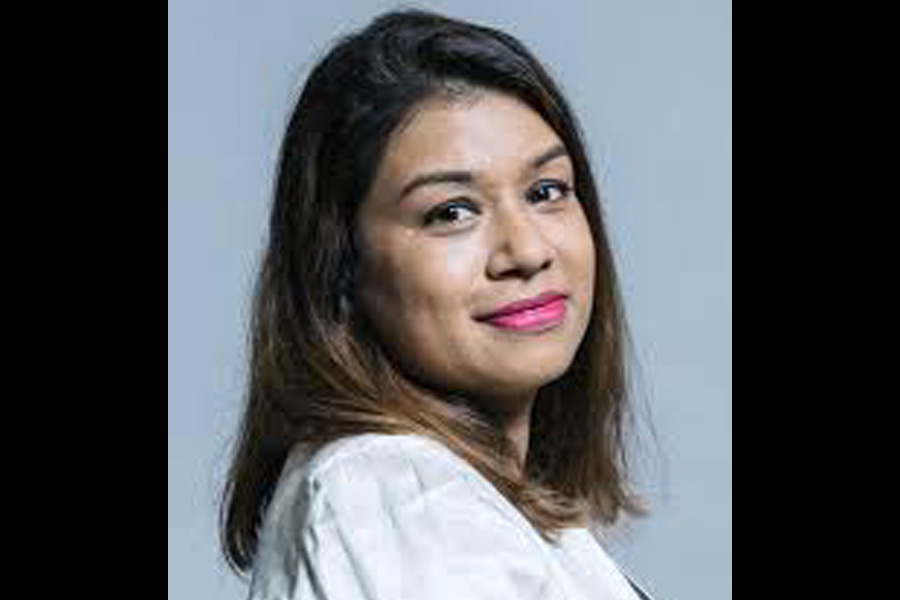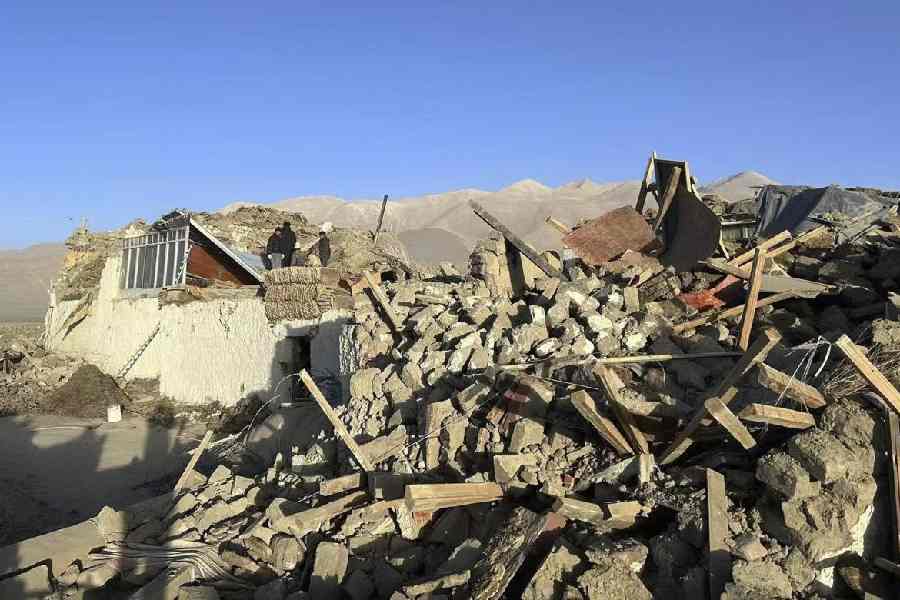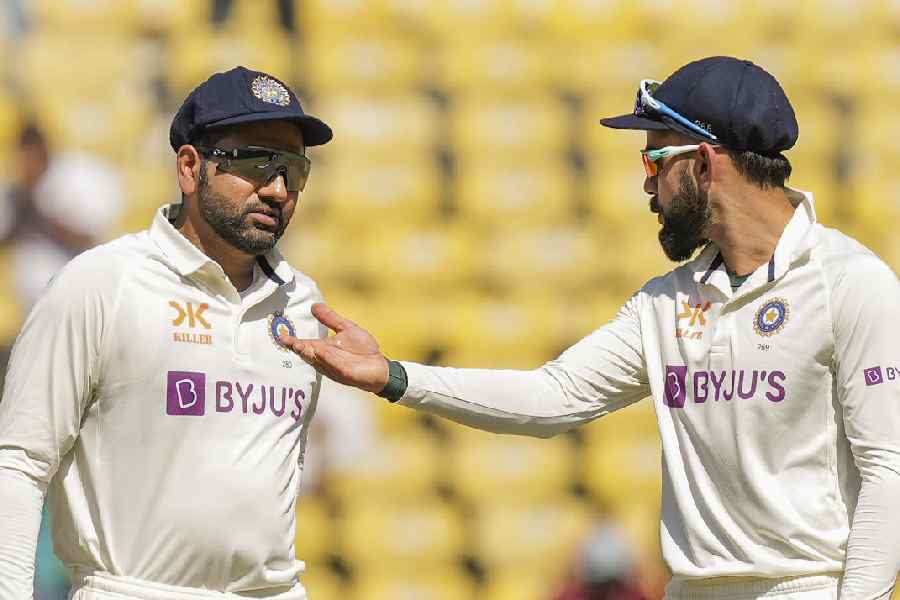A tense final was drawing to a close at Komazawa hockey field in Tokyo that afternoon in 1964. Several members of the Indian Olympic contingent as well as Indian expatriates working in Japan were in the stands as India led the defending champions Pakistan 1-0.
When the final whistle blew, two men jumped from the stands, ran to collect the ball from the field and hid themselves. Lakshmi Kanta Das’s face still lights up recalling the moments. The weightlifter had participated in the Tokyo Games, his second consecutive Olympic appearance after Rome in 1960. And this ball is the trophy that he brought back to Howrah.
“Sometime later, (wrestler) Maruti Mane and I emerged from our hiding place. I gingerly entered the warm-up room and got the winning team to autograph the ball.”
His second daughter Arundhuti brings the ball out from the cupboard, encased in a glass box. “Our Liluah workshop manager got the box made for me. Everyone here was stunned that I could bring the match ball back. You can still make out the captain (Charanjit Singh)’s signature," says the former Eastern Railway employee.
Das was reminiscing about Tokyo 1964 on a day the Olympic flame was lit to mark the opening of Tokyo 2020.
At 81, Das’s memory is fading like the other autographs on the ball which caught fungus since and had to be cleaned, thus smudging the pen marks. Yet he remembers enough. ““It would often rain in Tokyo. So we were given umbrellas. When India got the gold (the only medal from that Games), we whirled the umbrellas over our heads in ecstasy. Pakistan had beaten us in Rome four years back and this was revenge. Mine broke right there. A picture of us celebrating was carried in the Indian newspapers. In the evening, the maharaja of Mysore, who was part of our contingent, brought a crate of wine to celebrate in the Games Village.”
Royalty was routine presence in Indian Olympic squads, either as participant in sports like shooting or as officials. “The Patiala maharaj’s son was there too. They got invited to the Emperor’s box.” Emperor Hirohito had inaugurated the Games, he recalled, just as his grandson Emperor Naruhito was doing right then at the inauguration playing out on TV as Tokyo became the first Asian city to host the Olympics twice.
The 1964 edition was also about Japan’s regeneration after the bombing. "We were given a tour of Hiroshima, Nagasaki and Mt Fujiyama. The bus went right to the top level of the volcano,” Das says.
The weightlifting contingent was housed with gymnasts at the Games Village. “I also got friendly with the wrestlers — Malwa, Bishambhar and Maruti. I saw their events and took their autographs.”
The main venue of this edition will be the same National Stadium that had hosted the Games in 1964 too but will be a completely new-look one. “Even in our time, the organisation was immaculate, even better than in Rome. Each of us had been assigned a college student as interpreter. They were all so disciplined!”
The 11-time national champion, who received the Arjuna Award in 1962, is aware of Mirabai Chanu being the only lifter from India at these Games. “She is a medal prospect," he says confidently.
But mention Covid-19 looming over the Games and his face falls. “The standard of competition had suffered in 1980 because of the US and China’s boycott of the Moscow Games. It would be a shame if top players do not take part because of Covid,” says the stocky octogenarian, shaking his head in dismay.

